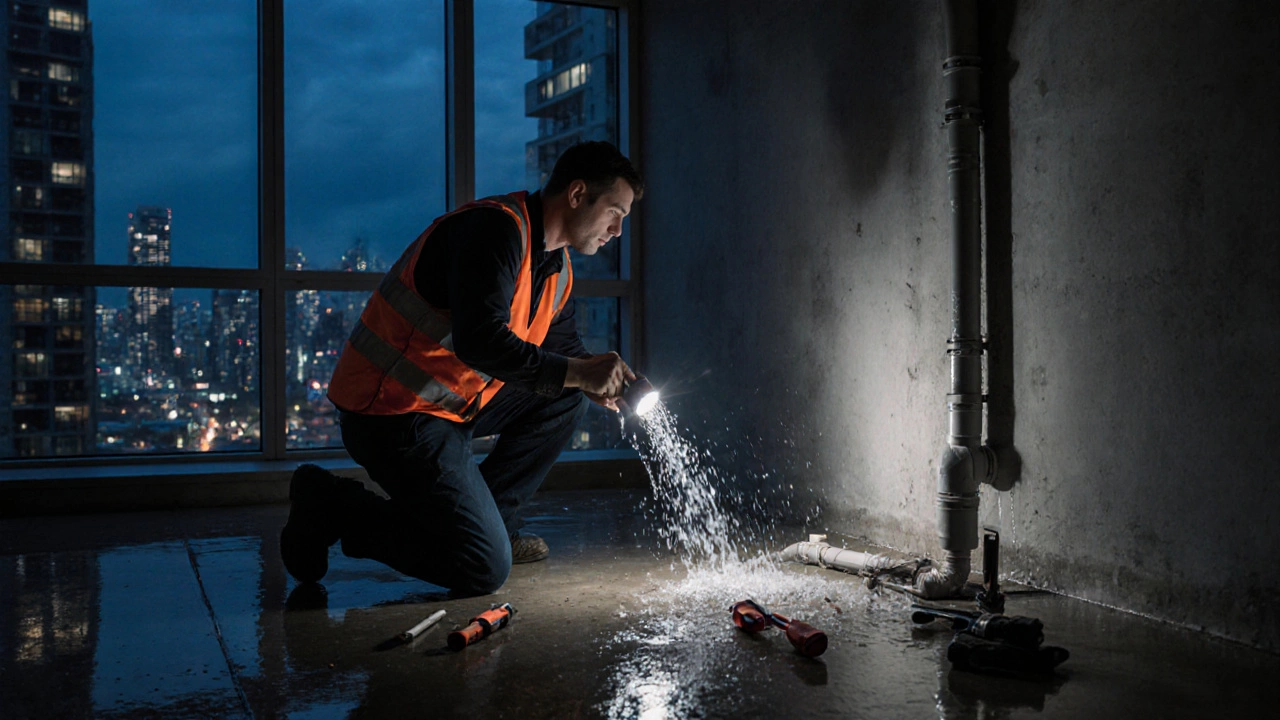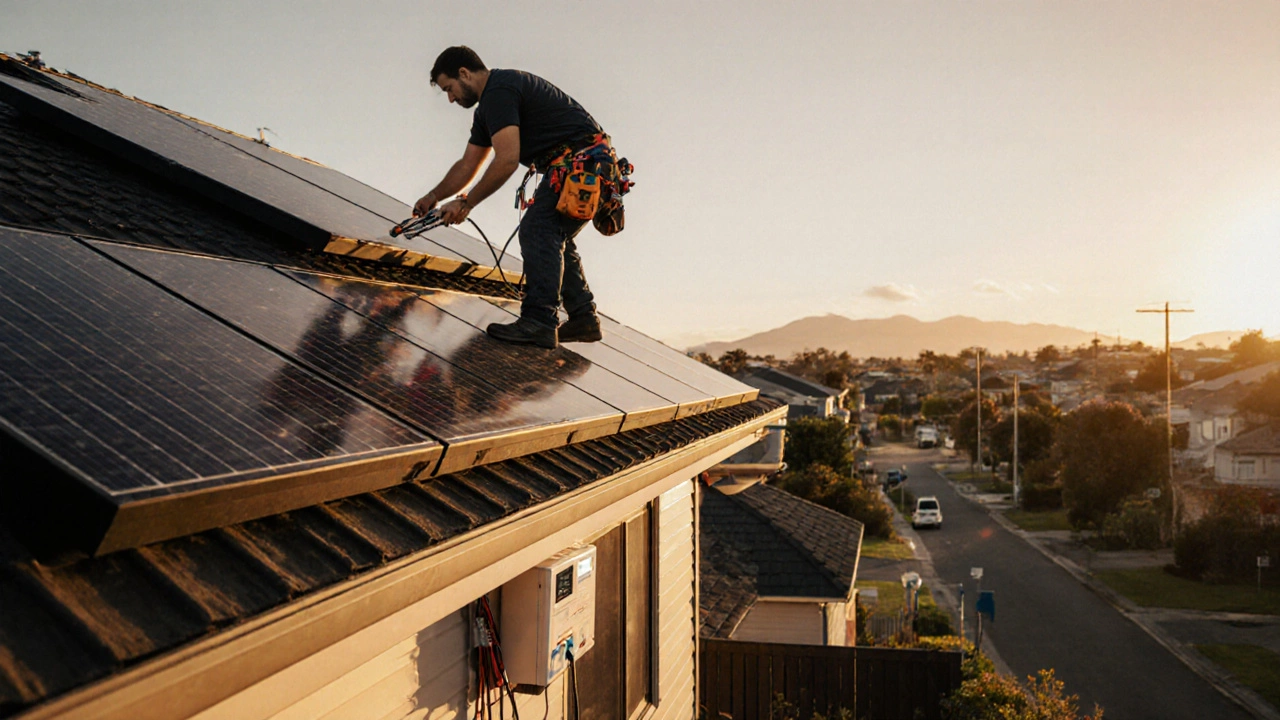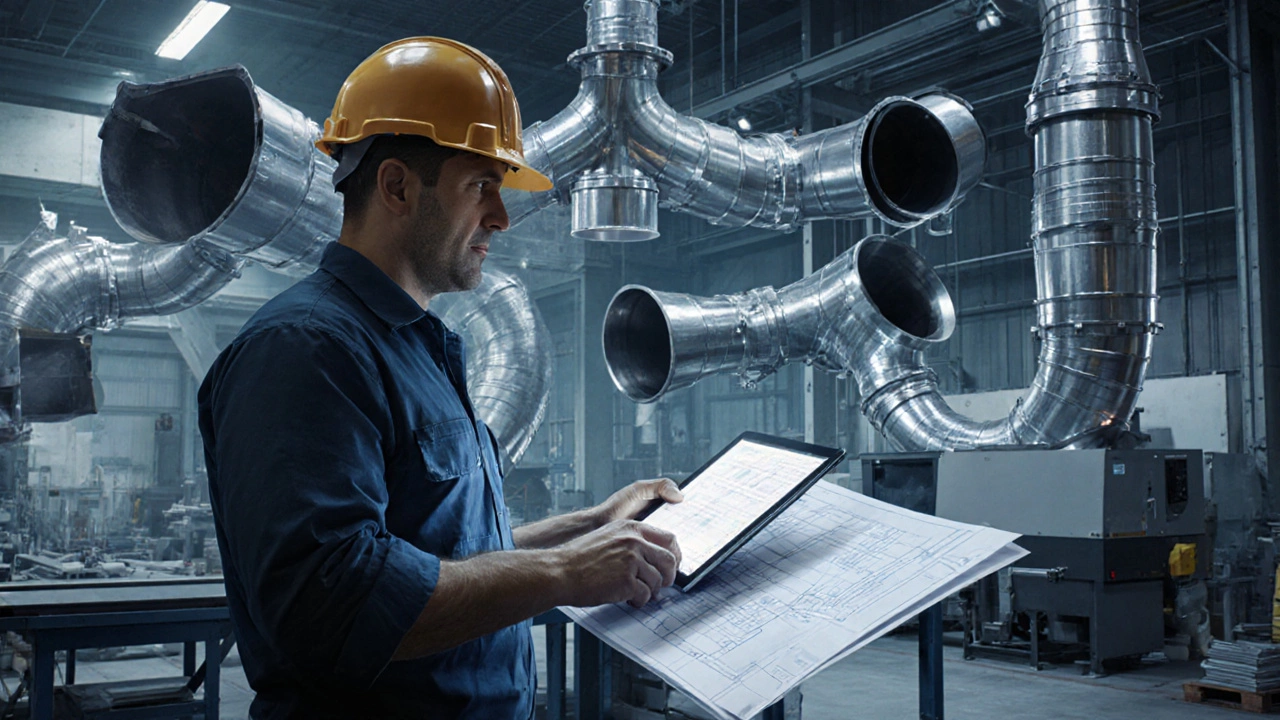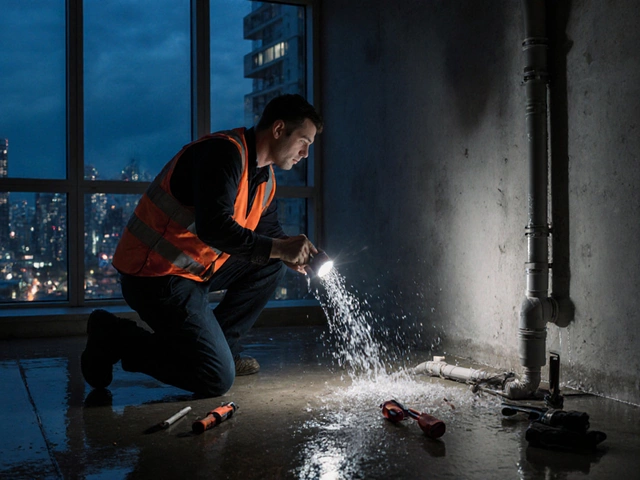What Is the Best Trade in Construction?

Construction Trade Salary Calculator
Estimate Your Earnings
See potential salary ranges for top construction trades in New Zealand based on your experience and location.
Your estimated annual salary will appear here based on your selections.
When you hear "construction," you might picture sweaty guys with hard hats lifting beams. But the real money, stability, and respect in this industry? That’s in the skilled trades. Not every job on a site pays the same. Some trades get you six figures before you’re 35. Others leave you stuck on low-wage grunt work for years. So what’s the best trade in construction? It’s not about who swings the hammer the hardest. It’s about who gets paid the most, has the most job security, and can actually build a life - not just a building.
Plumbing: The Invisible Backbone
Plumbers don’t get the spotlight, but every single building - homes, hospitals, offices - needs them. No water? No sewage? No business. That’s why plumbers are always in demand. In New Zealand, a qualified plumber can earn between $70,000 and $110,000 a year. In Auckland, with the housing boom and aging infrastructure, many are working 50+ hour weeks just to keep up. And here’s the kicker: you don’t need a university degree. A four-year apprenticeship gets you there. After that, you can start your own business. Many plumbers in Auckland run their own companies by their early 30s. They buy vans, hire apprentices, and invoice homeowners directly. No boss. No corporate ladder. Just steady cash.
And it’s not just residential. Commercial plumbing for high-rises, hospitals, and data centers pays even more. Specialize in gas fitting or backflow prevention, and your hourly rate jumps. You’re not just fixing leaks - you’re solving critical systems failures. One plumber in Mt Roskill told me he got called out at 2 a.m. to fix a burst pipe in a new apartment block. The developer paid him $800 just for showing up. That’s not luck. That’s demand.
Electrical: Power That Never Sleeps
If plumbing is the veins, electricity is the nervous system. Without it, nothing works. Electricians are the most in-demand trade in New Zealand right now. The government’s push for heat pumps, solar panels, EV chargers, and smart homes has created a wave of work that didn’t exist five years ago. A licensed electrician in Auckland can make $80,000 to $130,000 a year. Those who specialize in commercial or industrial systems? They hit $150,000+.
Here’s what most people don’t realize: electricians don’t just wire houses. They install fire alarm systems, security networks, data cabling, and renewable energy setups. One electrician I know in Manukau now spends half his time on solar installations. He trained himself on battery storage systems after seeing the demand spike. Now he’s booked out six weeks in advance. And he charges $120 an hour - more than most doctors.
The best part? The trade is evolving. You’re not stuck with old-school knob-and-tube wiring. You’re learning smart home tech, energy monitoring, and grid-tie systems. That means your skills stay relevant. And if you’re good, you can skip the corporate route entirely. Many electricians in New Zealand work as contractors, bidding jobs directly to builders or homeowners.
Sheet Metal Work: The Hidden Art
Most people never think about ductwork, roofing flashing, or commercial HVAC casings. But without sheet metal workers, buildings overheat, flood, or fall apart. This trade is quiet, precise, and brutally honest about pay. A qualified sheet metal worker in Auckland earns $75,000 to $105,000 a year. In commercial construction, where they install large-scale ventilation systems for malls or hospitals, the pay goes even higher.
What makes this trade stand out? You work with CAD software, laser cutters, and CNC machines. It’s not just bending metal - it’s engineering. You read blueprints like a programmer reads code. And because there are so few people trained in this skill, competition for apprentices is low. That means less crowding, better mentorship, and faster progression. One sheet metal worker I spoke with started as a laborer at 18. By 26, he was running his own team installing ductwork for a new hospital wing. His company now has 12 employees.

Why These Trades Win Over Others
Let’s be real: carpentry gets all the attention. Everyone thinks being a carpenter is the dream job. But here’s the truth - carpenters often work for contractors. Their pay is tied to the builder’s profit margin. When housing slows down, carpenters get laid off first. Plumbers and electricians? They’re called regardless of the market. A leak doesn’t care if the economy’s down. A broken circuit doesn’t wait for a housing boom.
And let’s talk about tools. A carpenter needs a truck full of saws, nails, and ladders. A plumber? One van, a few wrenches, and a camera for pipe inspections. Lower overhead means higher profit margins when you start your own business. Same with electricians - your tools are compact, portable, and last for decades.
Apprenticeships in these trades also pay better. In New Zealand, plumbing and electrical apprentices get paid between $18 and $28 an hour from day one. By year four, they’re earning $35+ an hour. Compare that to a construction laborer, who might make $25 an hour but has no path to higher pay without retraining.
What About the Other Trades?
Bricklaying? Solid pay, but weather-dependent. Heavy machinery operators? Great money, but you need a license, and the machines are expensive to maintain. Roofing? High risk, high pay, but burnout is common. Painting? Easy to get into, but saturated. You’re competing with hundreds of part-timers.
None of those are bad jobs. But they don’t have the same combination of growth, independence, and earning potential as plumbing, electrical, and sheet metal work.

How to Get Started
If you’re thinking about jumping in, here’s how:
- Find a registered training provider. In New Zealand, that’s usually a polytechnic or industry training organization like Construction Industry Training Organisation (CITO).
- Apply for an apprenticeship. You’ll need to be hired by a licensed contractor. Check local job boards - TradeMe, Seek, or even ask at local building supply stores.
- Start with plumbing or electrical. These trades have the clearest path to ownership and the highest long-term returns.
- Don’t rush. The first two years are hard. You’re cleaning up, fetching tools, and learning safety rules. But by year three, you’re doing real work. By year four, you’re qualified.
And here’s the secret: don’t wait for the "perfect time." The trades are hiring right now. There’s a shortage. Companies are offering signing bonuses. Some even pay for your tools.
Real Talk: It’s Not Easy, But It’s Worth It
These trades aren’t glamorous. You’ll get dirty. You’ll work weekends. You’ll stand in the rain. But you’ll never wonder if your job will disappear. You’ll never be replaced by a robot. You’ll build things that last. And you’ll get paid well for it.
I’ve seen guys who started as laborers in their 20s become business owners by 30. They own houses. They send their kids to school. They take holidays. They don’t need a degree to prove they’re worth something. Their tools do that for them.
So if you’re asking what the best trade in construction is - it’s the one you’re willing to stick with. And right now, plumbing and electrical are the safest bets.
Is plumbing the highest paying trade in construction?
Plumbing is among the highest paying, especially in areas with housing growth like Auckland. Qualified plumbers earn $70,000-$110,000 annually, and those running their own businesses or specializing in commercial systems can earn over $130,000. While electricians often earn slightly more due to demand for renewable energy work, plumbing offers strong pay with lower startup costs and high demand in both residential and commercial markets.
Can you make six figures in construction without a degree?
Absolutely. Skilled trades like plumbing, electrical, and sheet metal work don’t require a university degree. A four-year apprenticeship and a license are all you need. Many electricians and plumbers in New Zealand hit six figures by their early 30s by working as contractors, owning their own tools, and building client lists. Their income comes from skill, not a diploma.
What’s the easiest construction trade to get into?
Painting and general labor are the easiest to start - no formal training required. But they’re also the lowest paying and most competitive. If you want to build a career, plumbing and electrical are the smartest choices. They’re harder to get into, but they offer clear progression, better pay, and long-term security. It’s better to start slow with a trade that grows with you than to rush in with no future.
Do construction trades have a future with automation?
Automation won’t replace plumbers or electricians anytime soon. Robots can’t snake a drain or troubleshoot a faulty circuit in a 1970s house. While some tasks are becoming easier with tools like pipe-laying machines or smart meters, the core skills - diagnosis, adaptation, problem-solving - still require human judgment. In fact, automation is creating new jobs: installing solar inverters, configuring smart home systems, and maintaining energy-efficient systems. The trades are evolving, not disappearing.
How long does it take to become a licensed plumber or electrician in New Zealand?
It takes four years to complete an apprenticeship in either trade. You’ll spend most of your time working under a licensed professional while also attending weekly classes. After four years, you take a licensing exam. Once licensed, you can work independently. Many apprentices get their license by age 22-24, and some start their own businesses within a year.

